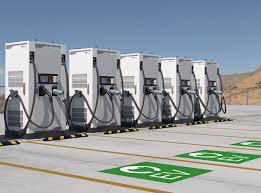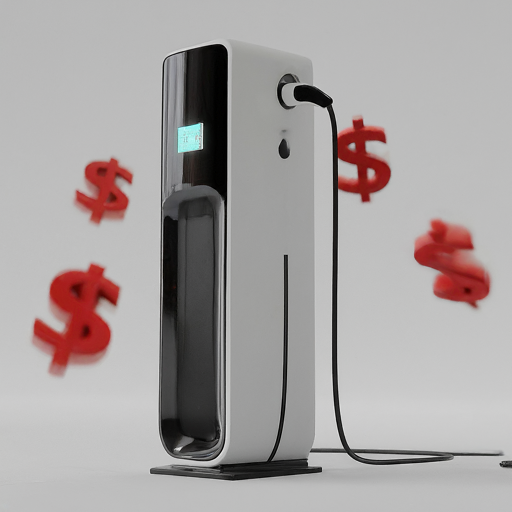There's also the idea of a Loss Leader.
People need to stop and charge. While they're there, you can also sell food, beverages, and all sorts of anything really.
Not everything needs to make a profit on it's own. Many stations couldn't survive only on fuel sales.
Electric Vehicles
A community for the sharing of links, news, and discussion related to Electric Vehicles.
Rules
- No bigotry - including racism, sexism, ableism, homophobia, transphobia, or xenophobia.
- Be respectful, especially when disagreeing. Everyone should feel welcome here.
- No self-promotion
- No irrelevant content. All posts must be relevant and related to plug-in electric vehicles — BEVs or PHEVs.
- No trolling
- Policy, not politics. Submissions and comments about effective policymaking are allowed and encouraged in the community, however conversations and submissions about parties, politicians, and those devolving into general tribalism will be removed.
This is also the idea behind convenience stores at gas stations. Pumps don't really give any income in for the owner operator, gotta sell goods that people have immediate need or urge for.
If I was planning locations for DCFC I’d target malls, shopping centers, etc. and not gas station. Virtually every Tesla Supercharger I’ve seen is located at the back of these sorts of parking lots, and for a very obvious reason.
That's thinking of the charger as a separate business from the location its installed at.
The charger could be owned and operated by the local business instead.
I honestly loath the current app based "charging network" model. It's nothing more than another way to collect data and track people.
The most logical place to put a charging station is the home. This doesn't work for everyone but for those who do, it is ideal.
The next best place is in any location like a store or restaurant where the average visit is longer than 30 minutes with the payment mechanism tied into the stories existing payment system.
Keep in mind the price of gas stations pump is $20k before installation. These also require maintenance and certifications. There is also a cost for maintenance of the gas tanks.
The price of charging stations will come down and the age of gas stations will come to an end.
With home charging that worsens the issue. When EVs are more widely used and people opt to install chargers in their homes, the demand for DC chargers will also fall.
I think the difference with gas stations is that you can get that $50 in a few minutes compared to half an hour, so you need comparatively less stations.
And another is will the price of charging stations actually come down? I don't actually believe they're exorbitantly expensive right
Keep in mind that the $50 a gas station is collecting is only about $5 in profit. Most of their profit is the retail sales.
Basic economics indicate the more volume is produced the cheaper each unit costs. I am not aware of any reason this is different for ev charging stations.
Here's a random article I found on the prices for these stations. The third level are the ones that are pricey. This is a fast moving market and level 4 already exists and won't be the last level. Each is faster at higher cost.
Not everyone needs a quick charge. The market will find a middle ground. My bet is people will choose a meal and a slow cheap charge over an expensive quick charge and still need to stop and eat anyway.
Gas is dirty, smelly and messy. Electricity is none of these things and so it can coexist in places gas cannot.
I figured the synergy was with retail and restaurants. Subsidize charging to motivate the customer who is already captive in your location to spend more. $10 off of a charge if you spend $50 in store.
I live not far from a casino that has free chargers in their lot, in an area without a lot of public chargers. They slow charge too, so people coming to use their chargers usually spend a couple hours at them. Seemed like a pretty good investment on the part of the casino to me.
I shop at Target a LOT more because there's charging there. It's not about the electricity price. It's about the addons. It doesn't even have to be that big of a store. Snack machines in a food desert. Touristy good vendingnmachines in an-touristy location (e.g., lil plushy chiles in new Mexico).
If the companies are making the chargers themselves or have bulk ordering deals that can make the chargers cheaper. There can also be various incentives from the government that can also help ease the cost.
There's a fundamental flaw in your premise. If we envision a world where everything is EVs, very little of it will be DCFC. Instead, level 2 chargers will be everywhere. Think of what you see in parking garages, except much more of it. Your car spends almost all of its life parked. You also (probably) rarely drive more in a day than the battery can hold.
Level 2 chargers are simple and low maintenance. They also end up being cheaper for everyone involved. These are already very profitable ventures, but they don't exist much at dedicated charging locations. Instead, they are and will be at places that people park for extended periods.
DCFC will mostly be along freeways for longer trips, and a limited number within a city for things like delivery drivers.
I think part of the problem I rarely see discussed is that many states have laws on the books that say ONLY the electric utility is allowed to sell electricity by the kWh. So locations can only charge an hourly rate to cover their costs regardless of the actual charging speed.

